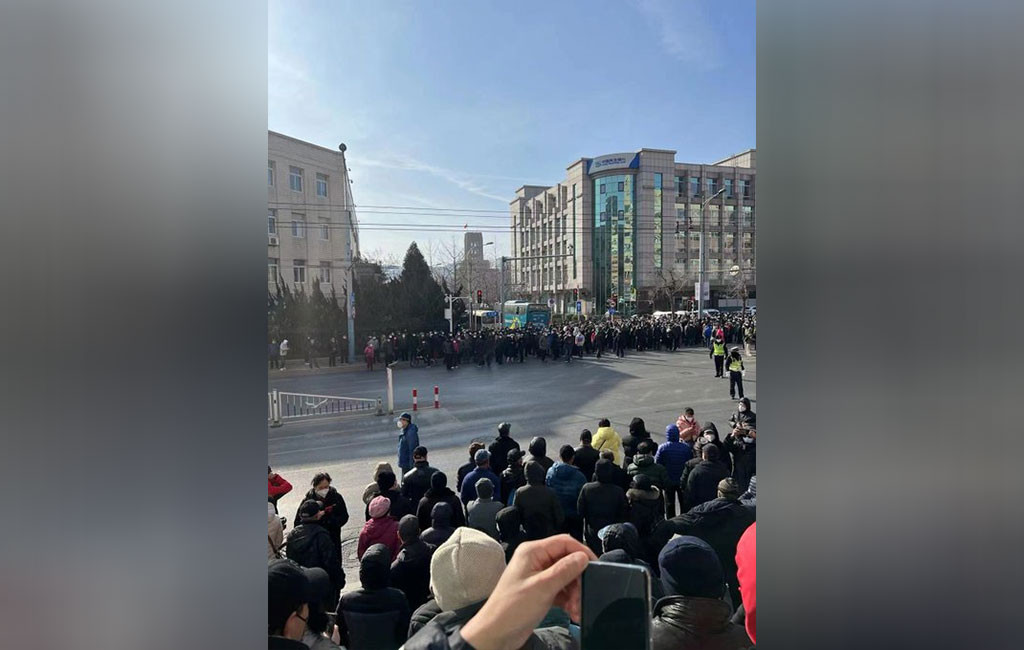Some diplomats in China say they are facing heightened scrutiny and interference from Chinese authorities, which is thwarting foreign officials’ efforts to re-engage with the country after three years of Covid-induced isolation.
Twenty envoys from 12 Western and Asian delegations told Reuters that in recent months they had noticed larger police presences around some diplomatic premises and increased attempts by Chinese authorities to intimidate embassy contacts and disrupt civic outreach endeavours, including LGBT and gender-themed events.
The challenges facing diplomats, mostly from Western nations, come as President Xi Jinping wages a national security campaign that has unnerved international business, and which three envoys said was deterring Chinese people from interacting with foreign missions.
China this year passed changes to a counterespionage law that widened the definition of spying and expanded police powers; blocked access to some data sources for overseas users; and investigated consultancies that provide information on the world’s second-largest economy.
Thirteen diplomats from nine Western and Asian delegations said that the challenges they face when arranging events about gender equality and LGBT issues, or broader cultural activities, showed how China’s red lines have shifted.
They described planning activities around these topics – including a film screening and panel discussion on women’s advancement in the workplace, to mark International Women’s Day – only for venue hosts or participants to withdraw, telling the diplomats that police had warned them against working with foreign missions. The envoys did not identify the local partners.
The diplomats spoke to Reuters on the condition of anonymity because of the matter’s sensitivity. Their accounts, however, were consistent in describing increased pressure on their work and on their Chinese contacts. Two said the interference was the worst in their roughly 10 years of combined experience in China.
“These new Chinese actions considerably limit soft diplomacy conducted by embassies and send a chill among potential Chinese attendees who are already harassed if they want to express any criticism of the regime,” said Guy Saint-Jacques, a Canada-based business adviser on China who was Ottawa’s ambassador to Beijing between 2012 and 2016.
China’s Foreign Ministry told Reuters in a statement that it “always abided by the Vienna Convention on Diplomatic Relations, and has provided necessary protection and assistance” to foreign delegations in China.
“Any country has the right to adopt domestic legislation to safeguard national security, which is in line with the common practice of all countries,” it said. “Chinese citizens equally enjoy the rights stipulated in the constitution and laws.”
The Ministry of Public Security, which oversees policing, did not respond to questions about the envoys’ accounts.
Some recent Chinese actions around foreign missions drew widespread attention, including a warning from authorities aimed at embassies displaying Ukraine flags.
Despite the crackdown, diplomats at most of the missions said they had still held successful events this year, including for Europe Day, which celebrates European unity. A few other delegations said they had not encountered issues with their events but that they tended to keep them to embassy grounds or, in the case of those held externally, avoid civic topics such as LGBT rights so as not to provoke China.
“We maintain regular contacts with representatives of the local civil society, not just in China, but throughout our 145 EU delegations and offices worldwide,” European Commission spokesperson Peter Stano told Reuters.
Unesco, the United Nations’ cultural agency, told Reuters it had worked with embassies in Beijing through the UN Resident Coordinator’s Office and had organised events without problems, including a February briefing with Dutch and Tajik officials on the UN 2023 Water Conference.
Tightening environment
Still, Chinese civil society has come under pressure with the arrests of lawyers, women’s rights activists and others. In May, the Beijing LGBT Center, which advocated for same-sex marriage, shut down, citing “forces beyond our control”.
Yaqiu Wang, senior China researcher at Human Rights Watch, described the pressure on diplomatic activities as China’s “latest attempt to eliminate the last remaining bit of space for independent Chinese civil society activism”.
Further, Wang said, Western governments should take these developments as a sign that Beijing “has no genuine interest in fostering an environment conducive to open and free engagement with the rest of the world”.
Police often contact Chinese LGBT or feminist activists before embassy events to pressure them not to go, even summoning them to police stations, said three diplomats and two Chinese nationals who spoke on the condition of anonymity for fear of retribution.
One Western envoy said a participant in an educational exchange had indicated she could no longer meet embassy officials after being warned by her university employer that doing so posed a national security risk.
“We get the impression that China is trying to restrict room for any activities intended to promote certain political issues, and they are trying to curb the effectiveness of our public communications,” said another Western diplomat.
In April, Chinese human rights activists Yu Wensheng and Xu Yan were arrested while headed to meet European Union officials in Beijing, according to the EU. China has not confirmed the arrests but has said it opposes interference in its internal affairs. Reuters’ efforts to reach the pair were unsuccessful.
Three diplomats told Reuters the incident had made them more careful about meeting with civil society figures.
“You really worry about the safety of our Chinese contacts,” said a Western diplomat.
Eight diplomats reported an increased police presence outside some diplomatic premises, with ethnic Chinese visitors stopped on their way in or out by people who would sometimes identify themselves as security officials and ask about discussions in the embassy.
Joseph Klingler, Washington-based partner at law firm Foley Hoag, said China was obligated under the Vienna Convention to prevent any disturbance of the peace of a mission or impairment of its dignity, and to accord full facilities for the performance of the mission’s functions.
“A case could be made that the intentional disruption of embassy activities violates one or the other of these provisions, if not both,” he said.
dhakatribune.com

